Who was Helen Joseph? The story of a South African freedom fighter
Helen Joseph's biography is a tale of courage, resilience, and unwavering commitment to justice. Born in England, she became one of South Africa's most prominent anti-apartheid activists, leaving an indelible mark on the nation's history.
We shall not rest until we have won for our children their fundamental right to freedom, justice and security.
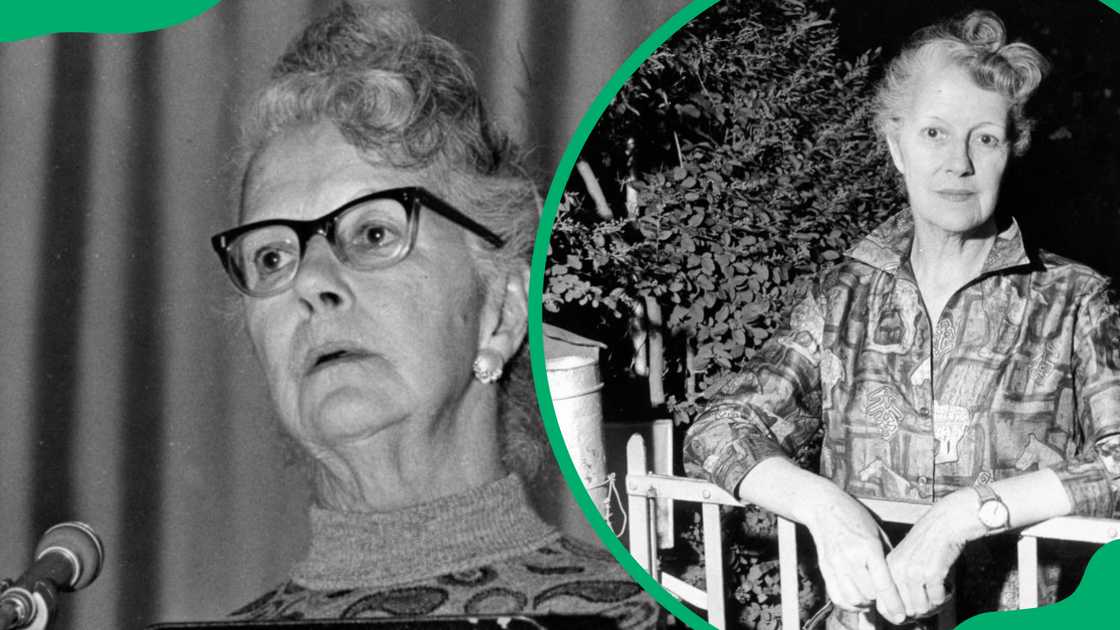
Source: Getty Images
TABLE OF CONTENTS
Key takeaways
- Helen Joseph was a pioneering anti-apartheid activist in South Africa.
- She played a key role in the Women's March 1956.
- Her leadership qualities inspired many in the fight for equality.
- Helen Joseph Hospital in Johannesburg is named in her honour.
- She passed away in 1992, leaving a legacy of defiance and integrity.
Profile summary
Full name | Helen Beatrice May Fennell |
Gender | Female |
Date of birth | 8 April 1905 |
Age | 87 years old (as of death) |
Zodiac sign | Aries |
Place of birth | Easebourne near Midhurst, West Sussex, England |
Date of death | 25 December 1992 |
Nationality | South African (originally British) |
Ethnicity | White |
Hair colour | Brown |
Eye colour | Brown |
Father | Samuel Fennell |
Siblings | Frank Fennell |
Marital status | Divorced |
Ex-husband | Billie Joseph (Jewish dentist) |
Children | None |
Profession | Anti-apartheid activist, social worker, and welfare officer |
Helen Joseph's biography
Helen Joseph was born in Easebourne, England, on 8 April 1905. After earning a degree in English from King's College, London, she travelled to India and later settled in South Africa. According to South African History Online, she initially worked as a teacher before finding her calling in social work and political activism.
Her work with the Garment Workers' Union and the Federation of South African Women marked the beginning of her active resistance to racial injustice, cementing her place as a key figure in the anti-apartheid struggle.
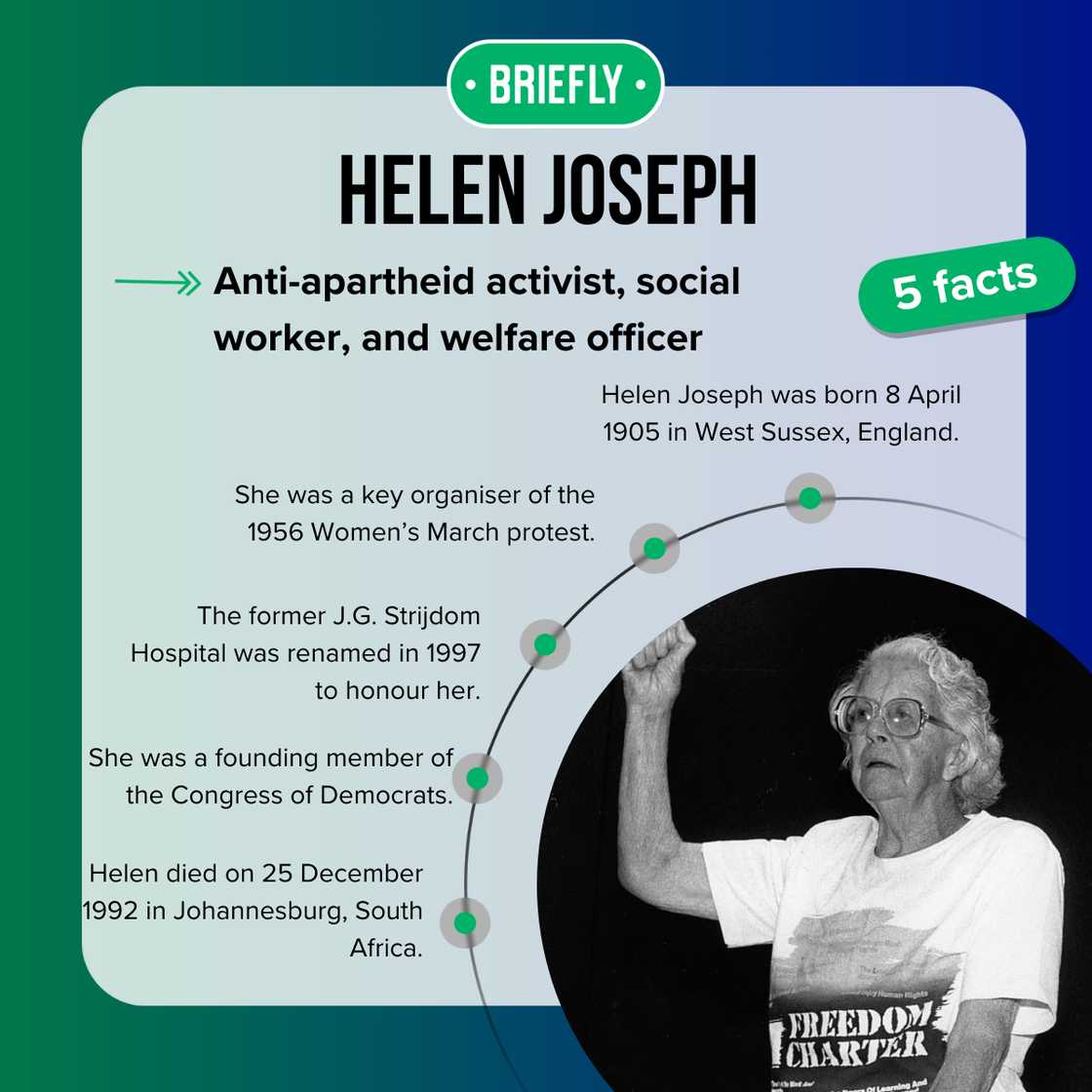
Source: Original
Helen Joseph's hospital: A legacy of care and remembrance
The Helen Joseph Hospital in Johannesburg is a lasting tribute to her dedication to humanity and justice. Known initially as J.G. Strijdom Hospital, it was renamed in 1997 to honour her contributions to the country.
Today, the hospital operates as a leading teaching facility, offering specialised healthcare services to thousands. Its renaming signifies the shift from apartheid-era symbolism to a more inclusive, respectful commemoration of national heroes.
Helen Joseph's quotes: Echoes of justice and hope
Helen Joseph’s words captured the spirit of resistance and the hope for a fairer future. One of her most celebrated quotes states,
I don't doubt for a moment that the revolution will result in a nonracial society.
This quote reflects her deep belief in equality and the power of collective action. Her speeches and writings remain powerful tools for education and inspiration, motivating new generations to stand up for human rights.
What did Helen Joseph do for South Africa?
Helen Joseph played a critical role in shaping South Africa’s liberation movement. As a founding member of the Congress of Democrats and a key organiser of the 1956 Women’s March, she boldly challenged the oppressive apartheid regime.
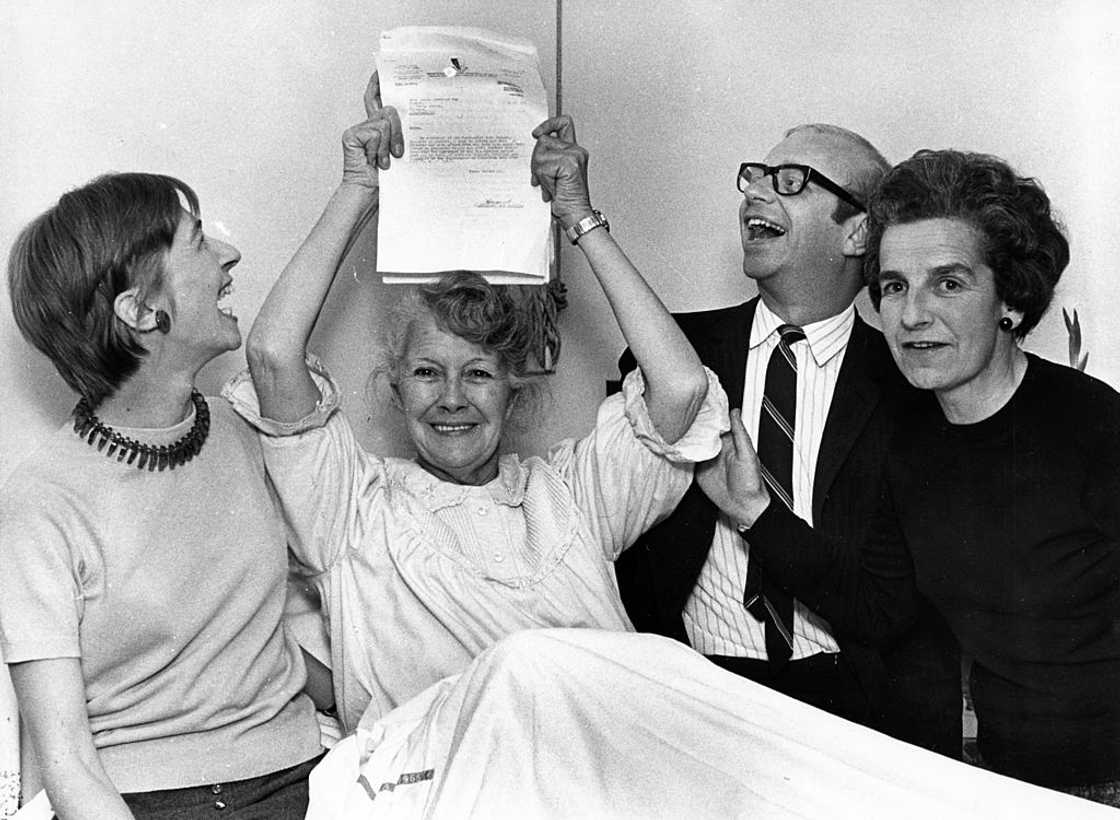
Source: Getty Images
Her leadership in mobilising thousands of women to protest and pass laws was a turning point in the resistance. Joseph continued to defy unjust laws, even under constant state surveillance, house arrest, and harassment.
How many children did Helen Joseph have? A life devoted to a more significant cause
Helen Joseph did not have any children of her own. Her marriage to Billie Joseph ended in divorce, and instead of raising a family, she dedicated her energy to serving a nation in need.
She became a mother figure to many young activists and mentored women who would continue the struggle. Her life of selfless service exemplified how one can extend family beyond bloodlines in the name of justice and equality.
How did Helen Joseph die? A peaceful end to a fearless life
According to the South African Heritage Resources Agency, Helen Joseph passed away on 25 December 1992 in Johannesburg, following complications from a stroke. Her death came just two years before the official end of apartheid, a cause she had devoted her entire life to fighting.
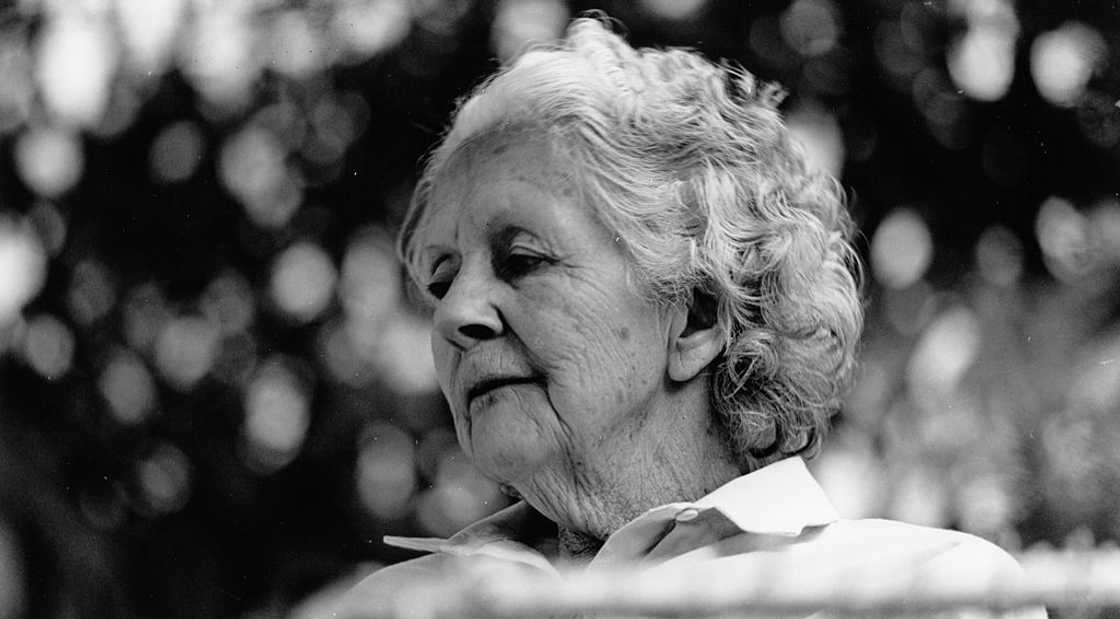
Source: Getty Images
Helen Joseph passed away on 25 December 1992 in Johannesburg, following complications from a stroke. Her death came just two years before the official end of apartheid, a cause she had devoted her entire life to fighting.
She died peacefully, surrounded by those who admired her. Her passing marked the loss of a true patriot, but her legacy endures in South Africa’s democratic progress and continued efforts toward equality.
FAQs
What is Helen Joseph Hospital known for?
Helen Joseph Hospital is known for its specialised healthcare services, quality training programmes for medical professionals, and its symbolic significance in post-apartheid South Africa.
What was Helen Joseph's role in the Women's March?
She was a key organiser of the 1956 Women's March, where over 20,000 women marched to the Union Buildings in protest of passing laws, demonstrating the collective power of women in the liberation struggle.
Why is Helen Joseph a good leader?
Helen Joseph’s leadership was defined by moral clarity, persistence, and the ability to inspire unity. She stood firm in the face of adversity, surviving assassination attempts and years of house arrest without wavering in her convictions.
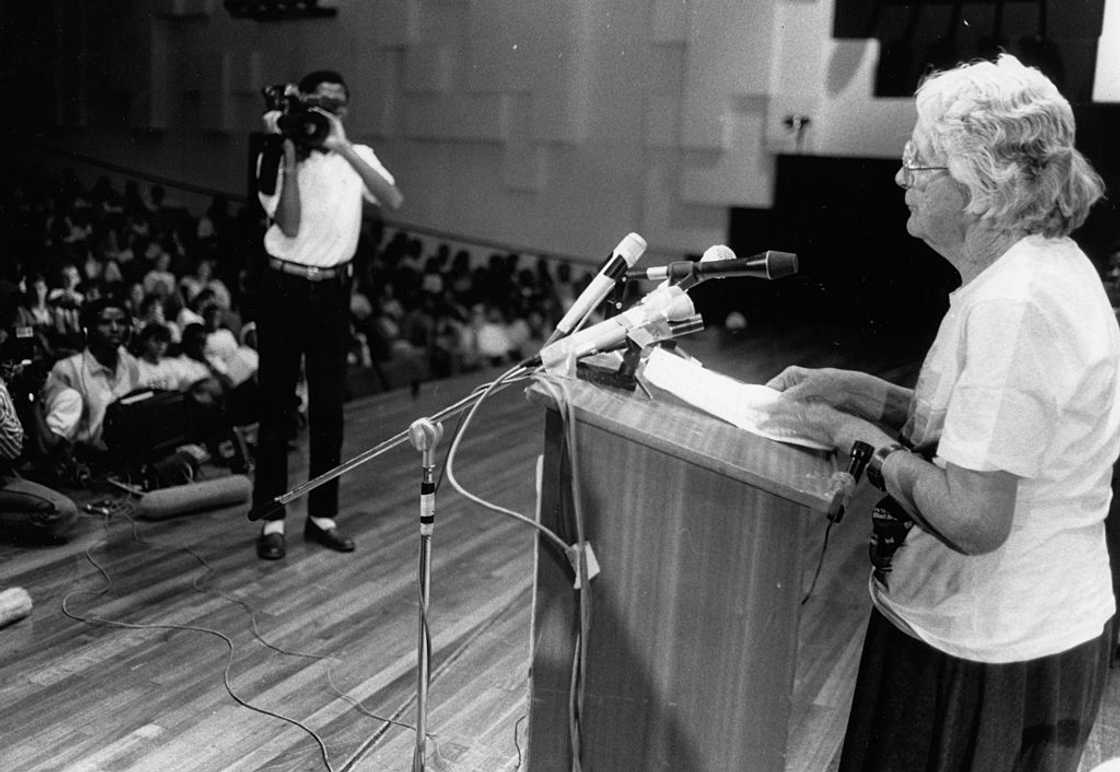
Source: Getty Images
Did Helen Joseph receive any awards?
Yes, Helen Joseph was awarded the ANC's Isitwalandwe/Seaparankoe Medal—one of the highest honours—for her lifelong dedication to the fight against apartheid and her role in shaping the nation’s path to freedom.
What legacy did Helen Joseph leave behind?
Helen Joseph left behind a powerful legacy of courage, equality, and relentless activism. She paved the way for future generations of leaders and continues to inspire human rights advocacy worldwide.
Helen Joseph's biography is more than a historical account; it is a story of profound bravery, self-sacrifice, and moral conviction. Her unwavering commitment to justice helped shape South Africa’s path toward democracy and inspired countless individuals to take action. Her life is a reminder that ordinary people can drive extraordinary change.
READ ALSO: Julius Malema's biography
Briefly.co.za published an article about Julius Malema on his rise in politics and activism. Malema rose from modest beginnings to become one of South Africa’s most influential political figures.
Discover how Julius Malema's leadership and public influence have shaped his role in the country's political landscape.
Source: Briefly News






